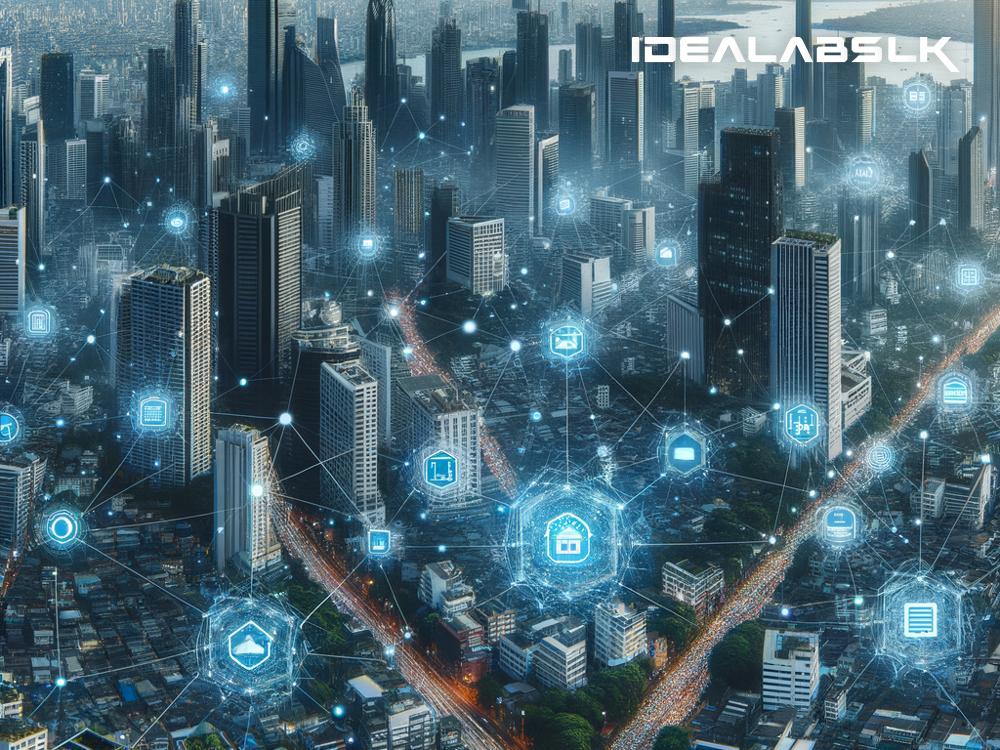How Blockchain is Revolutionizing Real Estate in Smart Cities
In an era where technology moves at the speed of light, blockchain technology is carving out what many would call the backbone of the next-gen urban landscape: smart cities. Among the various sectors it's revolutionizing, real estate stands out, not just metamorphosing how transactions are handled but redefining ownership and asset management in ways hitherto unimaginable. Let’s delve into the nitty-gritty of how blockchain is enabling the creation of smart cities through real estate.
The Fundamentals of Blockchain and Real Estate
At its core, blockchain is a decentralized ledger that records transactions across multiple computers. This means the record cannot be altered retroactively, without the alteration of all subsequent blocks and the consensus of the network. This feature brings in unprecedented levels of transparency, security, and efficiency to any transaction, making it particularly promising for real estate in smart cities.
Tokenization: Real Estate’s New Frontier
One of the groundbreaking innovations blockchain brings to real estate is tokenization. This involves converting rights to a property into a digital token on the blockchain. Think of it like this: Instead of having one owner, a property can have multiple 'shareholders,' each holding a token that represents a fraction of the property value. This opens up investment in real estate to a broader audience, democratizing access to what was once a highly exclusive asset class. It also makes transactions faster and more efficient, eliminating many of the bureaucratic hurdles that currently slow down the process.
Smart Contracts: Automating Trust
Smart contracts are self-executing contracts with the terms of the agreement written into code. In the context of real estate, this means that transactions can be automated, reducing the need for intermediaries, and thereby, the potential for human error or fraud. For instance, a smart contract could automatically transfer ownership of a property once a payment is verified, making the process seamless and instantaneous. This automation of trust is a cornerstone in building smart cities where transactions can be secure, transparent, and instantaneous.
Improving Land Registry and Property Records
For many cities, property records are a logistical nightmare fraught with inefficiencies and opportunities for fraud. Blockchain promises an elegant solution by creating immutable records of property ownership, history, and transactions. Once on the blockchain, these records cannot be altered or forged. This provides a level of security and transparency that paper records or digital databases simply cannot match. For smart cities, this means streamlined operations, reduced fraud, and improved trust in transactions.
Enhancing Property Management
Blockchain's implications extend beyond buying and selling properties. It also promises to revolutionize property management. By leveraging Internet of Things (IoT) technology, all aspects of property management, from utilities to maintenance, can be tracked and optimized on a blockchain. This leads to more efficient operations, cost savings, and an overall better experience for tenants and owners alike. Moreover, with smart contracts, many of these processes can be automated, providing real-time solutions and responses to property needs.
Challenges and the Road Ahead
Despite its vast potential, integrating blockchain into real estate and urban management comes with its set of challenges. Regulatory hurdles, the need for substantial technological infrastructure, and the digital literacy to handle such platforms are significant barriers. Moreover, the shift to a more transparent and open system might not be welcomed by all, given the vested interests and power dynamics at play in the current system.
Nonetheless, the march toward smart cities is inexorable, and blockchain's role in this transition is undeniable. Stakeholders from governments to private enterprises and citizens are recognizing the transformative potential of blockchain in building more efficient, transparent, and inclusive cities.
Conclusion
The notion of smart cities is quickly evolving from fiction to fact, and blockchain stands out as a key enabler in this revolution, especially in the real estate sector. By democratizing property investment, streamlining transactions, ensuring security, and enhancing property management, blockchain is not just changing the way we think about real estate but also how we conceptualize urban living in the 21st century. While challenges remain, the path forward is clear: blockchain technology holds the blueprint for the cities of tomorrow. As we continue to harness its potential, the dream of smart, efficient, and inclusive urban spaces becomes a palpable reality.

